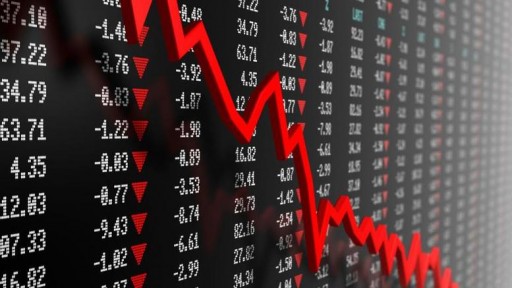- Home
- >
- Fundamental Analysis
- >
- All the reasons you’ve heard why the market is going down are wrong

All the reasons you've heard why the market is going down are wrong

Why is the stock market down so much? No one really knows the answer to that question, of course. In fact, no one ever knows what the market does what it does over the medium and long term. Having said that, this recent awfulness is particularly vexing to many market observers. That’s because what usually trips up the market comes as a bolt from the blue, or a "black swan" event to use the title of Nassim Taleb’s famously prescient 2007 book. The thing is that this time around most of the events dragging down the market have been gnawing at the global economy and markets for months if not years. Let’s take a look.
—The Chinese economy and market have been tanking. Seriously? This has been going on for what seems like forever. The Shanghai Index peaked last June 12. Yes, the index is down 53% since then—but most of the drop happened last summer. Oh and by the way, the Shanghai is still up 31% over the past two years. As for the Chinese economy, let’s remember it’s only the GROWTH that’s slowing, not the economy itself. In fact, the world’s second-largest economy still grew 6.9% last year. Sure, it might grow more slowly this year, but of course here in the U.S. we would kill to have anything anywhere near that. Furthermore, and to my point, none of this is a surprise.
—The Fed is raising interest rates and that’s bad for stocks. Well, gee. You had to be living on another planet without wi-fi not to know that the Fed was going to raise rates. They have been screaming this from the treetops for years. When Fed Chair Janet Yellen finally did pull the trigger on Dec. 16, the overwhelming reaction was, ‘What took you so long, Bucko?” Yes, higher rates are bad for stocks, but this was only a quarter-point up, long priced into the market, and is the opposite of an unexpected trigger event.
—The price of oil crashed. OK, this one has been a bit surprising, particularly the magnitude of the decline, but still we kind of saw this a mile away, right? Last July, The Economist did a piece titled “Commodities: The great bear market,” noting that the magazine’s commodity prece index had fallen 40% since 2011. By commodities, we mean iron and copper as well as oil, and much of the slack in demand has been due to less growth in China and other countries (see above). No shocker there. Here too, prices have plummeted, but most of the damage happened months ago. The price of a barrel of West Texas Intermediate fell from $105 in mid-2014 to $40 last summer. Yes, it’s fallen below $30 since then, but the big crash happened earlier. Plus, lower oil prices are a big net benefit for the U.S.
—Tech stocks are down! Yeah yeah yeah… Tech stocks are always down—unless they’re up! Not to be flip, but what I mean by that is tech stocks are volatile, and after a nice run-up, they’re going back down a bit. As far as the severity of the downturn, tech stocks were a bit high, but it’s not like we were in some sort of mega-1999-bubble or anything. Take a look at Amazon’s (AMZN) stock chart. It’s crazy up and down, right? And it looks really scary in 2015 with the stock going from $290 to $675 (it's now around $503). True, that’s a huge gain, but switch to the log scale view, which adjusts for percent differences (which, of course, you can do at Yahoo Finance!), and the gain is not so sick. I’m sure tech stocks will continue to go up and down, but the good ones will go up more up than down over time. In any event, overpriced tech stocks are not causing the market to crash.
—The bull market is long in the tooth. Nope. Bull markets don’t simply die of old age. Janet Yellen just said that and I agree.
—The strong dollar. Nyet. A robust greenback can’t by itself cause a market meltdown.
So why, why, why has the market been tanking? It’s probably true that the sum total of the above has created a pretty negative environment for stocks. But I think the overriding reason is that there is just less growth in the world than people had thought and, ergo, that means the world economy is riskier than previously thought. So investors are selling riskier assets and are hunkering down. Does that mean a recession is coming? Sorry, I’m not even going to go there.
Yahoo Finance
 Varchev Traders
Varchev Traders If you think, we can improve that section,
please comment. Your oppinion is imortant for us.






